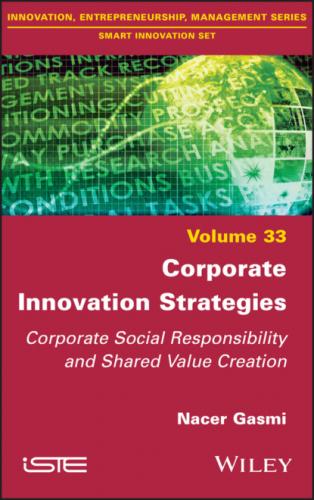The fourth step is to speak from the head or heart. According to White et al. (2020), corporate communication influences the adoption of responsible behavior by consumers. Launching and/or promoting a product, a service or a campaign requires marketers to choose between emotional levers and rational arguments, two strategies that are effective if certain conditions are met. The first plays on the fact that “consumers are more likely to be eco-responsible when they derive positive emotions, such as hope and pride”. Bacardi, a spirits company, and the NGO Lonely Whale have collaborated to try and eliminate a billion single-use plastic straws, using the hashtag #thefuturedoesntsuck to promote events and call on consumers to take action. The pride felt by participants in a study who were publicly praised each week for their energy efforts led them to step up these efforts. On the other hand, these authors point out that “a negative emotion, such as guilt, is an effective motivator only if it is used carefully”. During one experiment, responsibility was subtly emphasized (choosing a product publicly) and 84% of consumers bought Fair Trade products because they were so afraid of feeling guilty if they did not. Conversely, when their guilt was explicitly solicited (“How can you enjoy a cup of tea knowing that the people who produce this tea are not being treated fairly?”), they reacted very badly and only 40% of them chose environmentally friendly products. The second strategy “appeals to reason”. In 2010, Unilever took into account results which concluded that “people change their habits if they are sure that their actions will have a real impact, that is, if they have an individual impact”. The company therefore launched a campaign on its ecologically produced palm oil, with a photograph of an unspoiled rainforest and the slogan “What you buy at the supermarket can change the world… Small actions, big difference”. Thus, “the marketing of a sustainable product depends on communication of the potential effects of its use on the environment. The provision of information on sustainable behavior and its consequences is of decisive importance”, especially for products with high prices and deferred profits. A study by Hardisty (2020) has shown that when purchasing household appliances or electronics, consumers think little about their energy efficiency or care less about it than about their price. On the other hand, White et al. found that “a message geared towards the potential losses to the community in the event of insufficient household recycling is most effective if there is information on when the bins are taken out, what materials to recycle, etc.”. This method reassures people who are afraid of losing something and therefore have an “aversion to loss”.
The fifth step proposes favoring experience over materialism. Some companies have set up business models to make consumers more receptive to ecological alternatives. “In the experience economy, they offer experience-based solutions that are an alternative to material goods.” For example, Honeyfund might suggest financing a honeymoon trip rather than the household items on a wedding list. This makes the buyers and the bride and groom seem happier, with more meaningful memories. “With the sharing economy, companies specialize in sharing and renting products or services rather than selling them, which reduces their environmental footprint. Others offer recycling after the products have been used.” For example, Eileen Fisher and Patagonia encourage their customers to buy high-quality clothing that they can wear for a long time, and then send it back to the company to be refurbished and resold to perpetuate a sustainable circular economy.
Businesses are increasingly communicating with consumers about the sustainability of their brands to increase their market share and contribute to the development of a sustainable lifestyle. The authors of this study recommend that companies should better understand the wants and needs of their target markets, as well as the obstacles and benefits of behavioral change, and adapt their market strategies. “Applying the fundamentals of marketing to engage consumers with a brand’s raison d’être and successfully promoting sustainable consumption are the key challenges for companies in the future. The more companies overcome them, the more the sustainable business will emerge as a ‘smart’ business.”
1 1 Producers, experts, consumer associations, etc.
2 2 Excerpt from interview: Ignatius, A. (2015). Lars Rebien Sorensen voted best manager of the year 2015. Harvard Business Review, December–January, 98.
3 3 Excerpt from Donald Trump’s speech on the withdrawal of the United States on June 1, 2017.
4 4 Le Monde, June 3, 2017.
5 5 These agencies assess and rate responsible business practices on environmental, social and governance (ESG) issues.
6 6 American documentary film by Michael Moore released in 1998. The film denounces the practices of multinationals that lay off their staff while they make a profit, such as Nike, whose subcontractors use child labor.
7 7 Le Monde, Économie & Entreprise supplement, Thursday September 24, 2015.
8 8 Le Monde, Économie & Entreprise supplement, Wednesday June 20, 2018.
9 9 This credibility stems from their independence, their activism in relation to companies and the fact that the actions they defend are not in their own interests.
10 10 A product is classified as “conventional” if it does not contain tangible or intangible “environmental and/or social” attributes.
11 11 The author of this study drew on United Nations sources: Business & Sustainable Development Commission (2017). Better Business, Better World. Report, United Nations.
12 12 Search attributes are properties of products that consumers can check and evaluate before making a purchase (Nelson 1970; Darby and Karni 1973).
13 13 The core is the fundamental element of the representation: it determines both the meaning and the organization of the representation.
14 14 American distillery company of Tennessee whiskey, founded by Jack Daniel.
Конец ознакомительного фрагмента.
Текст предоставлен ООО «ЛитРес».
Прочитайте эту книгу целиком,
